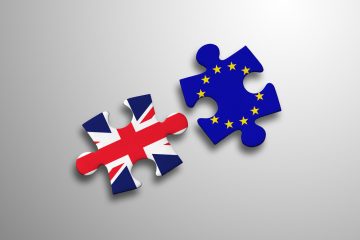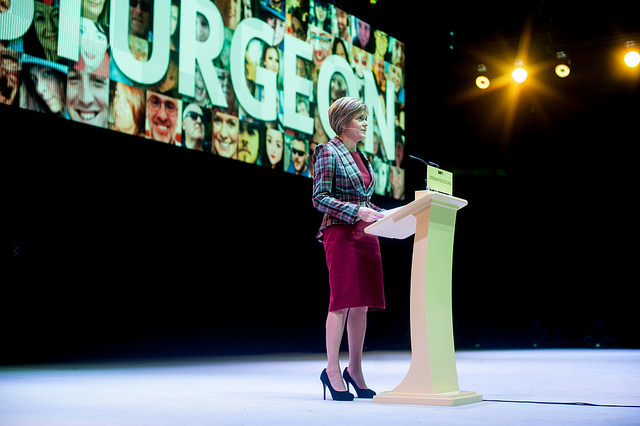#Indiref2: Twitter and the Potential for a Second Scottish Independence Referendum
On Twitter, conversations around Scotland’s independence, dampened momentarily by a failed referendum in 2014, have been reinvigorated with the advent of Brexit. This article examines how public sentiment towards Scottish independence varies across the United Kingdom’s four constituent nations (England, Wales, Northern Ireland, and Scotland) by analyzing tweets made in January of this year in lead up to Brexit. Perhaps not surprisingly, the majority of tweets totaling 4,462 (71.4%) on the subject were sent from the mainland of Scotland. 1,387 (22.2%) tweets were sent from England, whereas Wales and Northern Ireland have 286 and 212 tweets respectively, collectively accounting for less than 6% of the all tweets (see Figure 1). Despite the significant difference in the volume of tweets, the …

Complex Negotiations are Dynamic and Unpredictable: An analysis of Sturgeon’s and May’s approach to Brexit
In the week of 13 March, two momentous events took place. Parliament passed the bill giving the government authority to notify the European Council that the United Kingdom intends to withdraw from the European Union. And First Minister Nicola Sturgeon announced that her government will introduce legislation for a second independence referendum for Scotland. The first occurred despite the House of Lords’ insistence on a prior guarantee of the status of EU citizens or of an up-or-down vote on the final deal (or no deal); the second was a surprise move, seemingly calculated to pre-empt a positive news cycle on the day the bill was approved. These two leaders’ approaches to Brexit so far show the difference between imposing order and control in an …

Scotland After the Independence Referendum: An interview with Jim Gallagher
In this interview, Jim Gallagher discusses the political and constitutional issues arising from the 2014 Scottish Independence Referendum. Professor Jim Gallagher was senior advisor to the Prime Minister on devolution strategy (2007-2010) and was Secretary of the Calman Commission on Scottish Devolution. He is Visiting Professor at the University of Glasgow and Associate Member at Nuffield College, Oxford. An expert advisor to the Scottish Parliament, he was appointed to advise the committee considering the Scotland Act 2016. (The interview was recorded before the UK’s EU Referendum on 23 June 2016.)

Scotland, Ireland, and Brexit: what history tells us
The BBC published maps of the Remain and Leave votes on 23 June. The Remain map tells us lots of fascinating things, but this post will focus on the Celtic fringe and the historical context for why people may have voted the way they did. Most of Wales is like most of England, with the metropolitan city (Cardiff) voting Remain and the rest of the country mostly for Leave. Note, however, that there is a little dark (pro-Remain) strip in the north and west. The patterns of settlement laid down centuries ago by the English conquest of Wales still leave their mark as that strip is both Welsh-speaking and Remain-leaning. Welsh speakers take their political cues from Plaid Cymru, which …

The Loser Takes It All – The SNP after the referendum
If a political party were ever lucky enough to find itself in the SNP’s current position in Scotland, but across the entire United Kingdom, it would be heading towards the biggest landslide in British political history. The Nationalists are predicted to win around 45 per cent of the Scottish vote, giving them between 71 and 91 per cent of Scotland’s MPs.
The SNP offer candidates in only 9 per cent of Westminster constituencies yet are currently the British political party most certain of playing a role in the formation of the next government. The party’s current success comes against a backdrop of winning only 6 MPs in 2010, having as little popularity as the widely-loathed Scottish Conservatives as recently as 2013 and, in September of last year, leading a losing referendum campaign that forced a change in party leadership.
However, it is the referendum question that is now benefiting the SNP. The referendum campaign greatly increased support for independence, which is highly correlated with SNP voting in the General Election, as well as further dividing the Scottish party system, which was already split by attitudes towards independence. The closeness of the campaign has not extinguished hope amongst ‘yes’ voting Scots that independence remains a realistic possibility. Indeed, supporters of the SNP have become ever more fervent in their partisanship since September’s referendum.









